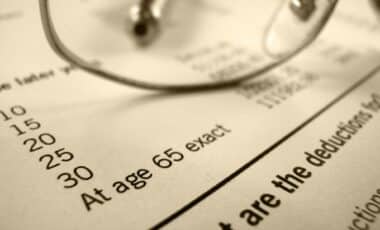Figures released by the Department for Work and Pensions (DWP) confirm that more than 13 million people across Great Britain are now receiving regular State Pension payments, having reached the qualifying Pension Age set by current legislation.
The financial landscape at retirement can shift in ways that are not always obvious, especially when certain entitlements change or stop entirely. For people nearing the official retirement age, clarity around the benefits system is essential.
According to Devon Live, many claimants are unaware that reaching State Pension age may affect access to various DWP-administered payments. Understanding which support remains available or becomes restricted is critical for those planning their post-retirement income.
Weekly Pension Payments Depend on Contribution History
The State Pension is a contributory benefit, meaning the amount each person receives is based on their National Insurance (NI) record.
To qualify, individuals must have paid or been credited with at least 10 years of NI contributions. Those who reached retirement age after 6 April 2016 are eligible for the New State Pension, which pays up to £230.25 per week.
In contrast, the Basic State Pension—applicable to older retirees under Category A or B—provides up to £176.45 per week.
Receiving the full amount typically requires 35 qualifying years, and the current State Pension age is 66, which also serves as the threshold for Pension Credit eligibility.
What Benefits Stop at State Pension Age
Upon reaching State Pension age, individuals are no longer eligible to submit new claims for several key benefits :
- Jobseeker’s Allowance (JSA)
- Contributory or New Style Employment and Support Allowance (ESA)
- Disability Living Allowance (DLA)
- Personal Independence Payment (PIP)
- Bereavement Support Payment
- Widowed Parent’s Allowance
While new applications for DLA and PIP are not permitted beyond pension age, individuals who already receive these benefits before reaching that age can continue to claim them, provided they renew within 12 months of the previous award’s expiration and for the same health conditions.
Understanding Mixed-Age Households
Eligibility becomes more complex for households where only one partner has reached State Pension age. As Turn2us explains:
If you live with a partner and one of you is pension age and the other is not yet pension age, benefit entitlement can be complicated.
In such cases, Turn2us recommends using the Turn2us benefit calculator or consulting a benefits adviser to assess entitlements more accurately.
What You Can Still Claim After Pension Age
Even after turning 66, several benefits remain available:
- Guardian’s Allowance
- Child Benefit (administered by HMRC)
- Carer’s Allowance (although the full payment may be reduced depending on State Pension income)
- Statutory Sick Pay (SSP)
Some benefits remain accessible if you meet specific income-related criteria:
- Cold Weather Payment (in England and Wales)
- Warm Home Discount Scheme
- Winter Fuel Payment (only for those over State Pension age in receipt of Pension Credit or another qualifying income-related benefit)
- Support for Mortgage Interest
- Help with Health Costs
- Housing Benefit
- Council Tax Support
- Pension Credit
Verifying Eligibility Online
The UK government provides a free online service to verify your State Pension age and determine your Pension Credit eligibility. To check your status, visit the official “Check your State Pension age” page on GOV.UK here.









